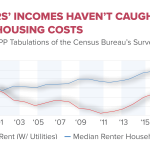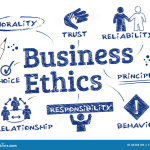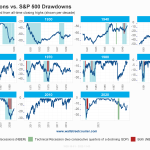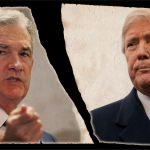Books on money are essential resources that can help demystify the often confusing world of finances. Whether you’re looking to sharpen your financial literacy or delve into the complexities of economic theories, the best books about money provide invaluable insights. From timeless classics to modern personal finance literature, these books can guide you in money management and investment strategies. Renowned economists offer their recommendations, shedding light on topics such as the evolution of currency, economics, and financial behaviors. By exploring these money management books, readers will find tools and knowledge that pave the way towards greater financial empowerment.
Exploring literature focused on finances encompasses a wide variety of themes, from personal wealth strategies to the historical context of financial systems. These economics books not only present critical analysis of market trends but also address the personal elements of managing one’s finances effectively. Engaging with financial literacy books allows individuals to navigate their financial journeys with confidence and understanding. Recommendations from authoritative figures in economics further enrich this journey by linking theory to practical applications. Ultimately, reading about monetary topics can inspire a shift in mindset towards smarter financial decisions.
Exploring the Best Books on Money
When it comes to gaining a solid understanding of financial principles, exploring the best books on money is invaluable. These texts not only illuminate the nature and history of currency but also offer insights into personal finance and economic literacy. Well-curated lists of books include titles such as “The Ascent of Money” by Niall Ferguson, which presents a historical perspective on how finance and debt have evolved over time. Such works serve not just as entertainment; they also act as educational resources that empower readers to manage their finances better.
Another influential book is “Money” by Jacob Goldstein, which delves into what money represents and its journey through history. Understanding these concepts is crucial for readers who wish to improve their financial literacy, as it lays the groundwork for managing personal finances effectively and making informed economic choices. Thus, books on money are a fantastic tool for anyone looking to enhance their financial knowledge.
The Importance of Financial Literacy Books
Financial literacy books play a critical role in helping individuals understand the intricacies of managing money. These texts often provide practical advice on budgeting, saving, and investing, empowering readers to take control of their financial futures. Notable recommendations in this category include “The Millionaire Next Door” by Thomas J. Stanley and William D. Danko, which outlines the habits and principles of America’s wealthy. Such literature equips readers with the tools needed to achieve long-term financial stability and independence.
Moreover, financial literacy goes beyond personal finance; it cultivates a deeper understanding of economic systems and market dynamics. Learning about the principles discussed in books like “The Behavior Gap” by Carl Richards aids readers in recognizing their psychological relationship with money. The skills gained from these books can help demystify complex financial concepts and lead to wiser economic decisions.
Key Economics Books to Enhance Understanding
Diving into economics books opens a portal to understanding how financial systems function and how they impact everyday lives. A classic example is “Freakonomics” by Steven D. Levitt and Stephen J. Dubner, which challenges traditional economic thought by applying economic theory to various unexpected real-world situations. Such works highlight the relevance of economic principles in daily decision-making, making them a must-read for anyone wishing to grasp the broader implications of financial policies.
Additionally, another profound book is “Capital in the Twenty-First Century” by Thomas Piketty, which examines wealth concentration and distribution in modern economies. These economics books not only provide historical context but also offer predictions about future trends, enriching readers’ perspectives on financial matters. By delving into these texts, individuals can develop a nuanced understanding of economics that influences their financial literacy.
Money Management Strategies from Literature
Books on money management serve as essential guides for orchestrating personal finance strategies effectively. Titles like “Your Money or Your Life” by Vicki Robin and Joe Dominguez inspire readers to rethink their spending habits and align their financial practices with their values. This book provides a step-by-step approach to achieving financial independence, making it a cornerstone resource in money management literature.
Another helpful title, “The Total Money Makeover” by Dave Ramsey, outlines actionable steps for getting out of debt and building wealth. Strategies and principles like these empower readers to take charge of their financial destinies, fostering a culture of responsibility in financial matters. Successful money management fundamentally relies on the wisdom distilled from such literature, making these books invaluable.
Personal Finance Literature for Modern Readers
Personal finance literature has transformed significantly in recent years, catering to a more diverse range of readers. Books like “I Will Teach You to Be Rich” by Ramit Sethi break down complex ideas into straightforward, actionable advice tailored for younger audiences. This accessibility encourages more people to engage with personal finance concepts, helping them to build their wealth early.
Furthermore, personalized narratives can inspire and resonate with readers. Works such as “Rich Dad Poor Dad” by Robert Kiyosaki provide readers with different perspectives on money management, instilling powerful lessons about income diversification and asset building. These personal finance texts highlight the importance of taking calculated risks in financial endeavors, enabling readers to approach their finances with confidence.
Understanding Digital Currencies Through Recommended Reads
As the financial landscape evolves, understanding digital currencies has become essential. Books like “The Future of Money” by Eswar S. Prasad offer an insightful exploration of cryptocurrencies and central banking challenges. This literature is crucial for individuals seeking to grasp the implications of digital transactions on the economy, enabling them to navigate this emerging financial territory.
Moreover, Milton Friedman’s “Money Mischief” gives readers a foundational understanding of monetary policy’s historical context, along with its impact on digital currencies today. Recognizing how past monetary strategies inform current economic discussions empowers individuals to make informed decisions about investments in cryptocurrencies.
The Role of Historical Context in Economic Thought
Exploring the interplay between money and history is crucial for comprehending modern economic practices. Books such as “The Price of Peace” by Zachary D. Carter offer detailed biographical insights into John Maynard Keynes and the evolution of economic thought. This historical perspective not only illustrates Keynes’s contributions but also connects his theories to contemporary economic policies.
Understanding how historical moments shape economic conditions helps readers appreciate the complexities of today’s financial systems. Readers gain valuable insights into how past financial decisions impact current ideas about fiscal responsibility, preparing them to navigate future economic challenges with informed perspectives.
Nobel Laureate Insights on Monetary Policies
Nobel Prize-winning economists provide invaluable insights into the complexities of monetary policies through their literature. For instance, Claudia Goldin discusses the role of women in the workforce and its economic implications in her book “Career and Family.” This exploration reveals economic trends from a fresh perspective, emphasizing how social dynamics affect financial outcomes.
Moreover, Kenneth Rogoff’s “The Curse of Cash” critically examines the implications of cash in modern economies, enhancing readers’ understanding of the relationship between currency and government regulations. Insights from Nobel laureates can enlighten readers on the nuances of economic policy, helping them grasp the essential concepts driving today’s fiscal landscape.
Innovative Perspectives on Future Finance
Innovation in finance is more crucial than ever, with emerging trends transforming how money is perceived and utilized. Books like “The Only Game in Town” by Mohamed A. El-Erian delve into the challenges faced by central banks and their responses to economic crises. These texts reassure readers about the stability of financial systems amidst uncertainty, guiding them through potential risk factors.
Additionally, understanding disruptive financial technologies through literature allows readers to anticipate changes in everyday transactions. Engaging with insightful works about finance empowers consumers to adapt to new methods of managing their money in an increasingly digital world. Such knowledge prepares them for future economic shifts, ensuring they remain financially savvy.
Frequently Asked Questions
What are some of the best books about money for improving financial literacy?
When exploring the world of financial literacy, some of the best books about money to consider include ‘Money’ by Jacob Goldstein, which offers a captivating history of money, and ‘The Ascent of Money’ by Niall Ferguson, which details the evolution of finance throughout history. Additionally, ‘The Total Money Makeover’ by Dave Ramsey is a highly recommended personal finance book that outlines effective strategies for managing and growing your wealth.
How can money management books help you achieve financial stability?
Money management books provide invaluable guidance on budgeting, saving, and investing. Titles like ‘The Richest Man in Babylon’ by George S. Clason offer timeless lessons on wealth-building principles. Reading these financial management books can help you develop skills for making informed decisions, ultimately leading to greater financial stability and success.
What are the most recommended financial literacy books for beginners?
For those new to personal finance, ‘The Simple Path to Wealth’ by JL Collins is often recommended for its straightforward approach to investing and wealth accumulation. Additionally, ‘Your Money or Your Life’ by Vicki Robin is a powerful financial literacy book that emphasizes transforming your relationship with money. Both books are excellent starting points for anyone looking to enhance their understanding of financial concepts.
Which economics books are essential for understanding money’s role in the economy?
To grasp the complexities of money in economic contexts, ‘Money Mischief’ by Milton Friedman is essential as it discusses the impacts of monetary policy. Another significant title is ‘The Price of Peace’ by Zachary D. Carter, which not only delves into John Maynard Keynes’ theories but also explains broader economic concepts. These economics books are great resources for deepening your understanding of money’s role in both theory and practice.
What personal finance literature is recommended for mastering budgeting skills?
For mastering budgeting skills, ‘Budgeting 101’ by Michele Cagan is a practical guide that covers essential strategies for managing your finances effectively. Similarly, ‘The Complete Guide to Personal Finance for Teenagers’ by T. Rowe Price offers foundational budgeting knowledge that is accessible to readers of all ages. These personal finance literature titles equip readers with the tools needed to create and maintain a successful budget.
Are there any financial literacy books that specifically address the role of cryptocurrency?
Yes, ‘The Future of Money’ by Eswar S. Prasad is a highly recommended book that provides a balanced account of cryptocurrencies and their economic implications. This financial literacy book delves into the pros and cons of digital currencies and central banks, making it essential reading for anyone interested in understanding how cryptocurrency will shape the future of finance.
| Title | Author | Description |
|---|---|---|
| Money | Jacob Goldstein | An entertaining history of what money is — and what aspired to be money but turned out not to be, often at a great loss to those who bet on it. |
| The Future of Money | Eswar S. Prasad | The most reliable economic account of cryptocurrencies, providing a particularly balanced account of the pros and cons of central banks’ developing digital currencies to replace or complement traditional money. |
| Money Mischief | Milton Friedman | A prominent postwar proponent of monetarism warning about money’s complexities through various scholarly contributions. |
| The Price of Peace | Zachary D. Carter | A biography of John Maynard Keynes exploring his thoughts on how money affects the economy, alongside discussions on economic policy after his death. |
| The Ascent of Money | Niall Ferguson | An entertaining history of debt and finance through the ages, showcasing an impressive blend of insight, humor, and wide-ranging knowledge. |
| The Only Game in Town | Mohamed A. El-Erian | An in-depth examination of central banking policy during the global financial crisis with a critical outlook on quantitative easing. |
| Ben Franklin: An American Life | Walter Isaacson | A sweeping view of Franklin’s life focusing on his innovative approach to currency and his influence on money during his time. |
| The Curse of Cash | Kenneth S. Rogoff | An exploration of the past, present, and future of coinage, currency, and digital currencies, emphasizing the inevitability of government regulation. |
| The Forgotten Financiers of the Louisiana Purchase | Larry Neal | A captivating investigation into the financial mechanisms behind the Louisiana Purchase, focusing on the powerful Barings banking family. |
| Career and Family | Claudia Goldin | A discussion on the evolving aspirations of college-educated women over the years to balance career and family within the economic landscape. |
Summary
Books on money provide invaluable insights into the complexities of financial systems, the evolution of currency, and economic theories. The recommendations from these Harvard economists highlight a range of perspectives and analyses that can demystify money and its role in society. Engaging with these texts not only informs readers about historical narratives and pivotal economic events but also encourages critical thinking about current issues related to finance, central banking, and innovative monetary technologies.










